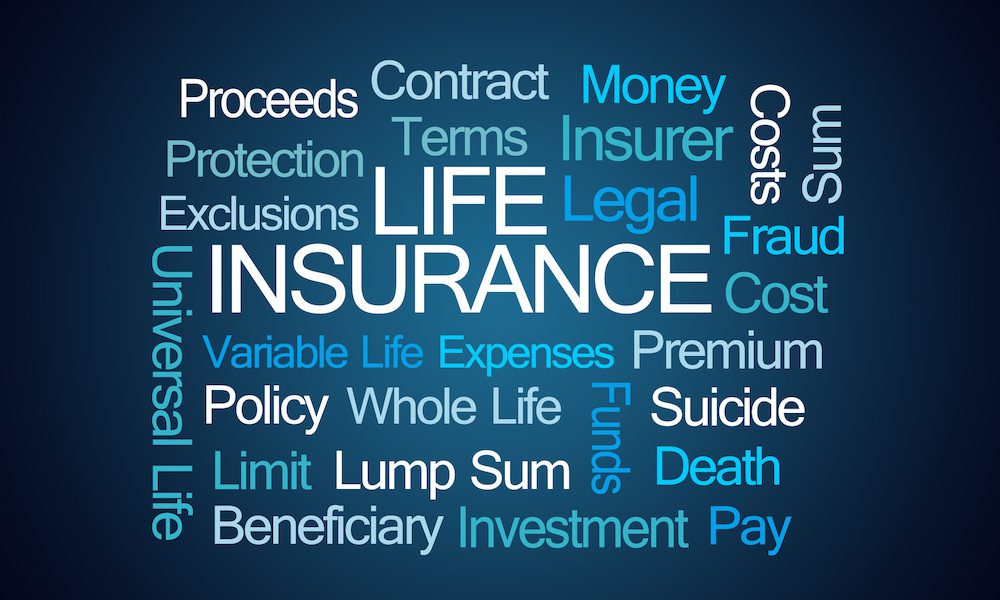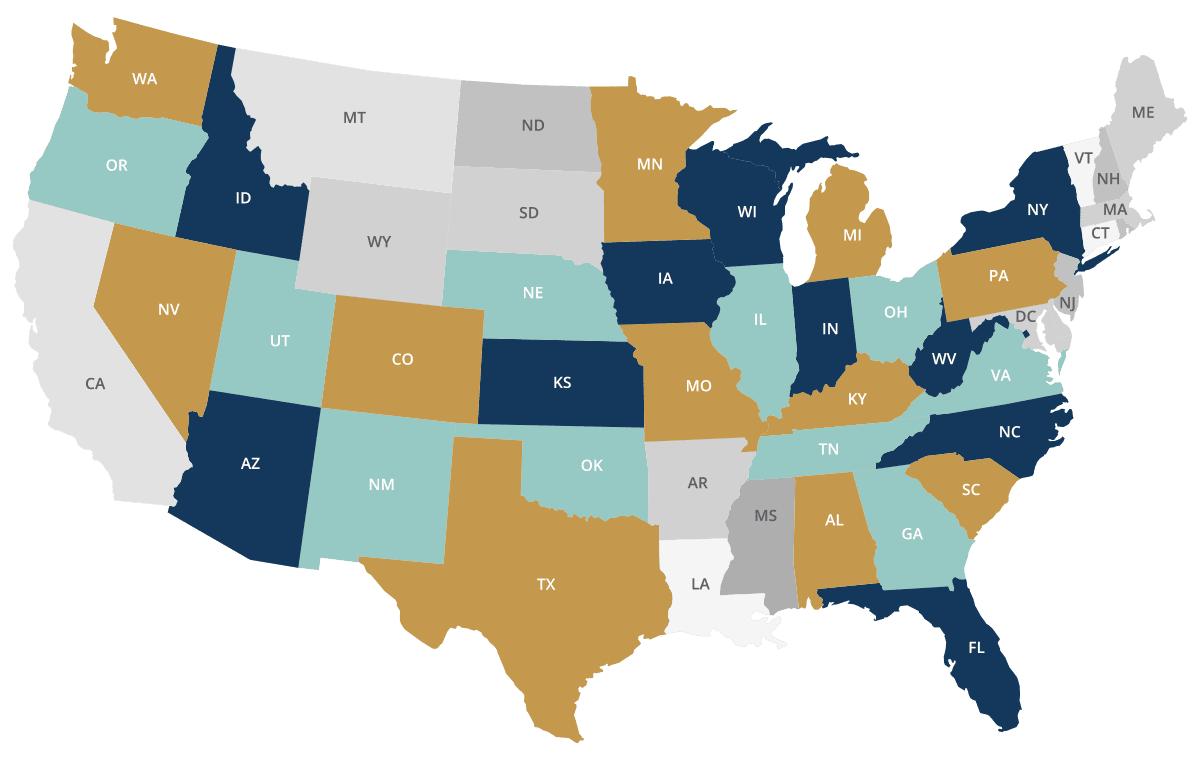
One of your life goals should be to get life insurance so you know you and your family will be taken care of. Keep reading to learn all about life insurance.
Less than 60% of Americans have life insurance and out of those that do, only half have enough coverage.
Why is this the case? Life insurance policies can get complicated and many people aren’t aware of the facts. Not everyone’s life goals include buying a life insurance policy, but it should be given very serious consideration.
The more you know about life insurance, the easier it is to find the right policy that adequately insures you. Read our guide on 10 things to know about life insurance.
1. It’s More Than Monetary Value
If one of your life goals is to get life insurance, you may already know that it adds more than monetary value to your life. If not, that’s okay, we’ll explain why.
Some consequences come with the loss of life, especially if that loss was unexpected. With a life insurance plan, the people you leave behind can cover the financial expenses they are left with, giving you the peace of mind that your loved ones will be protected.
2. It Helps Those Who Rely on You Financially
If you are a spouse or parent of dependent children, a life insurance policy can help upon your death. If someone relies on you financially, this policy is essential to have.
For example, life insurance can protect your family from your debts and mortgages, and other final expenses. It can also help cover planned educational expenses and the loss of income.
Yet, it doesn’t have to be for a family member’s sake. If you are an employer or business partner, a life insurance plan can fund a buy/sell agreement and help cover expenses when you are gone.
Dealing with the loss of a loved one is difficult, but a life insurance policy can leave your family without the added troubles of financial burdens.
3. It’s a Contract
A life insurance policy is actually a contract between you and an insurance company. It could also be used as a trust if the livelihood of someone else is important to you.
In the event of death, a life insurance company will pool the premiums of policyholders and pay out the claims. This is known as the death benefit.
The insurance company receives a profit based on the difference between the premiums and the claims paid.
4. There Are Four Primary Roles
There are four primary roles within a life insurance policy: the insurer, the owner, the beneficiary, and the insured.
You may have guessed it, but the insurer is the insurance company that is responsible for paying claims once the insured has passed on. The owner must pay premium payouts to the insurance company.
The life insurance policy is medically underwritten on the insured and the beneficiary is the person or trust that receives the claims or death benefit. Most times, the owner and the insured are the same people.
5. It’s Not Always an Investment
A life insurance policy can have an additional investment component, but that is not usually the case. Universal life, whole life, and variable life insurance policies are all investment types of plans. These investments offer some degree of tax privilege.
On the other hand, more common types of life insurance plans, like a term life policy for example, are risk management tools.
6. They Can Be Inexpensive
Most people are surprised when they come across an inexpensive life insurance policy. A term policy with plain terms is cheaper than others because it offers low premiums for only the specified term.
Applying for a permanent policy is the more expensive option because it covers you for your whole life. A term policy and a whole life policy (permanent policy) are the two most common plans out there.
Term Life Insurance Policies
A term life insurance policy is easy to understand and is relatively inexpensive compared to whole life policies. With this plan, you’ll have coverage for a fixed amount of time. Generally, between 10 and 30 years.
Some refer to term life as “pure life insurance” because it protects dependents if you die prematurely. If you die within the term, the beneficiaries receive a payout, otherwise known as the death benefit.
Major benefits of these policies include the cost and premium remaining the same during the term period. When you buy this type of policy, you choose the term period you want.
If you are shopping for term life insurance policies, there are a few things to keep in mind. One is finding a term that covers the amount your family would need if you could not provide for them any longer. The payout would replace your income, help with child care costs, etc.
Term Life is usually the best option for those that need life insurance until their kids are on their own and debt is paid off. It is also a good idea to save money during the term so that you’ll have a financial safety net when the term period expires.
Whole Life Insurance Policies
Whole life insurance is more expensive because it provides lifelong coverage. This type of insurance comes with an investment option known as cash value.
In a tax-deferred account, the cash value will slowly grow. You won’t pay taxes on these gains while they are building.
During the life of the policy, you can borrow money from the account or surrender the policy in exchange for cash. If you don’t repay these loans with interest after borrowing money, the death benefit will reduce.
If you surrender the policy, you won’t have coverage any longer.
This form of permanent life insurance is more straightforward than others even though it is more complicated than term life insurance. With whole life insurance, you can take advantage of:
- Premiums remaining the same while you live
- Guaranteed death benefit
- The guaranteed rate of cash value growth
Specific types of whole life policies earn annual dividends meaning you’ll get some of the insurer’s profit back. You can use these dividends to:
- Receive cash
- Keep in your account and earn interest
- Decrease premium payments
- Repay policy loans
- Buy more coverage
It is important to note that dividends are not guaranteed.
7. They Don’t Have to Be Complicated
Many avoid buying a life insurance plan because they think they are too complicated to understand. However, it is better to get a basic life insurance policy that you do comprehend than to not get one at all.
In most situations, getting a policy that can cover all or most of your income is good enough. You only need a policy for as long as you think your household will need your income.
If you do want to understand a more complicated policy, there are resources out there to help you. Feel free to reach out to our licensed life insurance agents here at Gessel & Associates, who can walk you through your options.
8. There Are Cancellation Methods
Most policies come with cancellation methods, but you need to proceed with caution if you plan on canceling.
The first rule of thumb is to only cancel once you have a replacement policy in place. You never know what the universe will throw at you in the short amount of time you don’t have a life insurance policy.
Term policies are less complicated to get out of. You can cease your premium payments and your coverage will lapse as a result.
If you have a cash value policy, be sure to analyze the potential value before cashing it in. You may be losing out on money by canceling. You can ask your insurance agent for a cost basis report before making a decision.
9. Additional Coverage Can Be Added
We’ve already touched on this fact, but we want to cover it further. A lot of times people buy a life insurance policy thinking they have enough coverage, only to find out they need more than they anticipated. Changing life circumstances can place additional demand on life insurance proceeds.
Because life insurance is more than a way to pay off debt or funeral expenses, having more is better. If someone depends on you, you’ll need your policy to cover the loss of your income as well.
Luckily, additional coverage can be added to most policies. It is also possible to have more than one life insurance policy at a time.
10. You Can Outlive Your Policy
If you opt for a term life insurance policy, you may outlive it and get your money back.
If you reach the end of your term policy without making a claim, the life insurance company will return all of your premiums. Yet, this is only the case if you pay extra for the return of premium option.
Accomplish Your Life Goals: Get a Life Insurance Policy Today!
We assume you are interested in life insurance if you have stumbled upon this article. If you are ready to achieve your life goals and get an insurance policy, you are already one step ahead of the game.
Now that you are more versed on life insurance facts, you can shop for a policy that is right for you. For more questions about life insurance or to sign up for a policy today, contact us.


